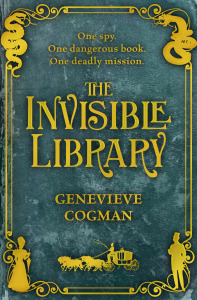Wolfgang's mouth smelled of lies. There are different sorts of lies, and each one has its own smell. This particular lie smelled of suspicion: Wolfgang was probably reporting not his own thoughts but the words of his boss. Wolfgang was a liar, but fortunately he was still a young liar. His smell revealed that he was still a child, and a smell cannot lie.
Memoirs of a Polar Bear, by Yoko Tawada, is a beautifully whimsical meditation of a novel.
Really it's the memoirs of three polar bears spanning three generations. But they are the collective unconscious of an archetypal polar bear. Each bear embodies all past bear ancestors.
The subject of that meditation is tough to pin down. It is about writing and words and politics.
"Writing isn't particularly different from hibernation."
"The smaller the newborn text, the better, because then it has a better chance at survival."
"The boss had no doubt intended to enrich this low-fat speech with a bit more semantic butterfat."
"After that I stopped writing anything political, though I'm not entirely sure what's political and what isn't."
"Rage is a sort of fuel that can't be found in the forest."
It is about nationalism and cultural identity. How language is linked to identity. It is about climate change and responsibility and responsibility for the actions of our forebears. Free will and predetermined nature. What is natural and what is learned behaviour.
The first bear, the grandmother, is a star circus performer; she rode a bicycle in the early days. When her knees gave out after training in Latin American dance, she was assigned a desk job and started participating in conferences (for example, Working Conditions Among Artists, and Working Class Pride).
So there's this polar bear just living out her life in Moscow, sweet-talking her superintendent into giving her some contraband vodka, and the super starts discussing a masterpiece of Japanese diary literature from the Middle Ages, which inspires the bear to pen her autobiography, which is well received by the public, but her celebrity leads to persecution by the state.
She defects to West Germany, where she is overwhelmed by the availability of goods and somewhat taken aback by the conspicuous and wasteful consumption of the West. The bear begins to realize that her fate is inextricably linked to that of humans and human rights.
A bookseller presses Heinrich Heine's
Atta Troll on her, for which she reproaches him: "You sold me an indigestible book!"
Atta Troll, A Midsummer Night's Dream, an 1841 epic poem, is about a dancing bear who makes a break for freedom, to end up as rug in Paris. (Everything I know about Atta Troll I owe to
short summaries and a Google preview of
Reading Heinrich Heine; it appears to be not widely known in English.) The conversation turns to censorship.
Eventually she seeks political asylum in Canada. She learns English, marries, has a daughter (Tosca); her husband wants them to flee to East Germany, to contribute to the creation of an ideal state, so they do.
And this is how this novel is. Is she really a polar bear, or is she a metaphor? She is nameless.
Her daughter, Tosca, makes her name on the stage, and eventually also works in the circus. It appears that Tosca's son, Knut, is born in captivity, in a zoo, and is also an acclaimed public figure.
Their memoirs in turn are both funny and poignant.
"Someone told me once that illness was a traditional form of theater practiced by office workers, who were allowed to put on these performances only on Mondays when they didn't want to come to work."
"It's not that I want to talk about the war, it's just that it makes me nervous to have a hole in my circus biography. A hole that big might one day become my grave."
"I wanted to wrap myself in the black woolen blanket of grief and brood over my clutch of sorrows until they hatched and flew away, but it wasn't possible."
"Knut felt powerless in the face of time. Time was a huge ice block made of loneliness. Knut gnawed and scratched at it, but without effect. When Christian complained of having no time, as he often did, Knut envied him."
Each bear gains awareness of themselves, their heritage, and the larger climate of which they're a part. Only by looking inward can one begin to see outward.
I expected gimmicky and sentimental, but this novel was unpretentious and thoughtful, thoroughly charming. It let me revel in surreal circumstances and circus stories, but gave me space to consider some very serious questions indeed. The narrations flits easily, letting my mind settle where it will.
After the death of all living creatures, all our unfulfilled wishes and unspoken words will go on drifting in the stratosphere, they will combine with one another and linger upon the earth like fog. What will this fog look like in the eyes of the living? Will they fail to remember the dead and instead indulge in banal meteorological conversations like: "It's foggy today, don't you think?"









